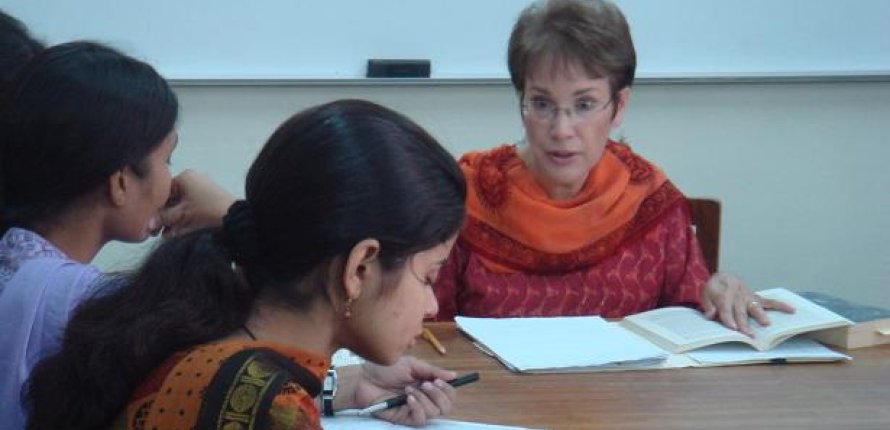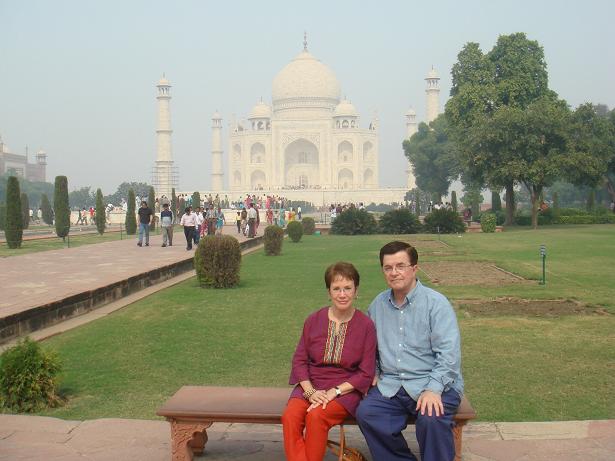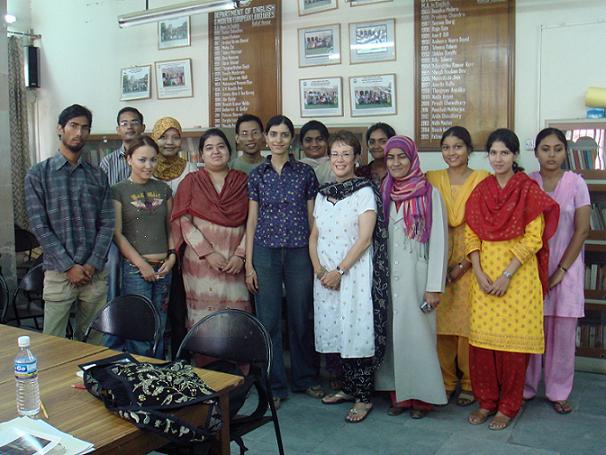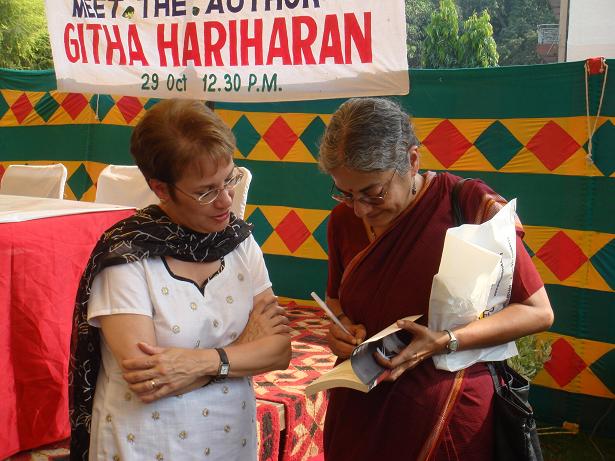Teaching Dickinson in Delhi

Karen Waters, Fulbright Alumni Ambassador
Professor of English Emerita at Marymount University
2006-2007 Core Fulbright Scholar to India
As I stepped out of the Delhi airport into the warm October night in 2006, I was filled with excitement and anxiety. I was embarking on two long-cherished goals – to visit India and to live in another culture for an extended period of time. Both of these goals were coming together through my Fulbright U.S. Scholar grant. But I was also anxious for the same reasons I was excited: would I like India as much as I hoped I would, and could I adjust to a culture so different from the one I had left? I would be teaching literature to graduate students at a Muslim university; would I encounter any significant cultural prejudices (or have any of my own)?
period of time. Both of these goals were coming together through my Fulbright U.S. Scholar grant. But I was also anxious for the same reasons I was excited: would I like India as much as I hoped I would, and could I adjust to a culture so different from the one I had left? I would be teaching literature to graduate students at a Muslim university; would I encounter any significant cultural prejudices (or have any of my own)?
As it turns out, my stay in India was the highlight of my personal life and academic career. On a personal level, I met many wonderful people during my five-month stay in India, particularly at Jamia Millia Islamia, the institution where I taught. My colleagues were warm and gracious, inviting me and my husband into their homes and escorting us not only around New Delhi, but to Agra to see the Taj Mahal as well. We had many conversations through which we discovered that we shared more similarities than differences, united by our love of literature of all kinds. My students were similarly kind and welcoming, taking me shopping for  Indian clothes (which I wore exclusively, to their delight), escorting us around the city and even teaching us some rudimentary Hindi so that we could better negotiate with rickshaw drivers. I am still in regular contact with friends I made in India, both faculty and students.
Indian clothes (which I wore exclusively, to their delight), escorting us around the city and even teaching us some rudimentary Hindi so that we could better negotiate with rickshaw drivers. I am still in regular contact with friends I made in India, both faculty and students.
Professionally, my Fulbright to India changed my worldview and my approach to teaching. My immersion in another culture for an extended period of time taught me to appreciate the contributions of all cultures to global history and life. I came home committed to embracing the teaching of world literature (which had formerly intimidated me) and, as best I could, to rid my teaching of unintentional, yet undeniable, Western  bias. Now, I regularly include, when appropriate, texts other than Western ones in my syllabi, and I actively seek to familiarize myself with – and to teach – literature from cultures with which I am unfamiliar. These changes have, I believe, made me a more effective teacher and researcher. And, although my grant was a teaching one, I was able to do some informal research in another area of academic and personal interest, women’s rights in India. The results of this research allowed me to give several presentations to academic and civic groups upon my return.
bias. Now, I regularly include, when appropriate, texts other than Western ones in my syllabi, and I actively seek to familiarize myself with – and to teach – literature from cultures with which I am unfamiliar. These changes have, I believe, made me a more effective teacher and researcher. And, although my grant was a teaching one, I was able to do some informal research in another area of academic and personal interest, women’s rights in India. The results of this research allowed me to give several presentations to academic and civic groups upon my return.
For anyone contemplating applying for a Fulbright grant, my advice is simple: “Do it!” It may take multiple tries to succeed, and you may have to wait until the time is right, both personally and professionally, but a Fulbright grant has the capacity to enrich your life in ways you never thought possible.
